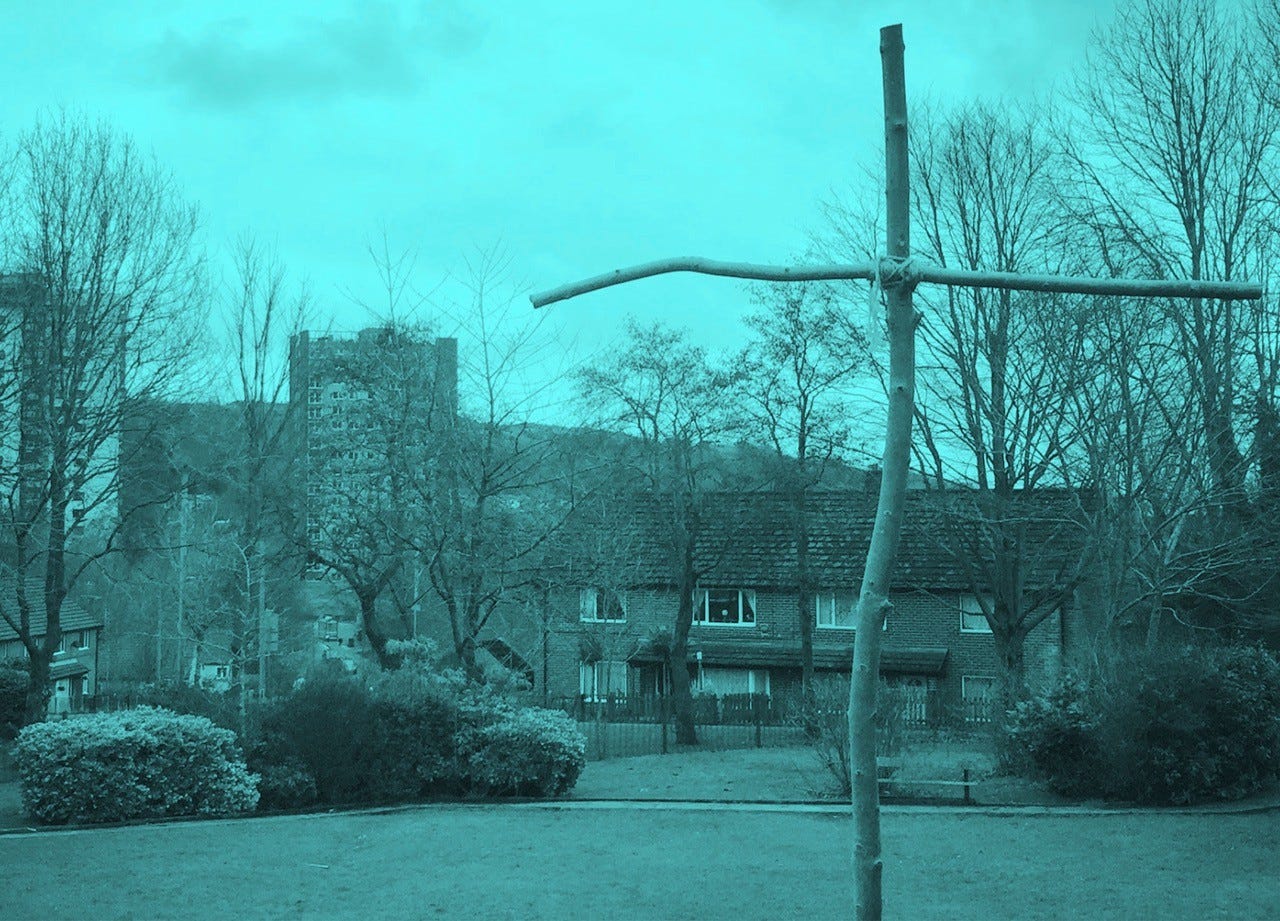Dear Friends,
Welcome to our Newsletter for the Pentecost Season, especially to our new subscribers.
Communion
Whoever has ears, let them hear what the Spirit says to the churches
On the day of Pentecost, the disciples were all together in Jerusalem. Jesus had told them to wait there for the promise of the Father. As devout Jews, they would also have been waiting to celebrate Shavuot, the Jewish festival that celebrates God’s revelation of the Law at Mount Sinai.
Hearing a great noise like a rushing wind, the disciples are filled with the Holy Spirit. Astonishingly, they find themselves speaking in multiple languages. The noise alerted other Jews in Jerusalem, people from all over the known world. They came to see what was going on—and were amazed to understand the apostles’ message in their own tongues. Many Christians interpret this action of the Holy Spirit as the birth of the church. This unity of peoples and languages is often contrasted with the Tower of Babel, when man’s attempt to acquire god-like power, through false unity, was thwarted by the true God.
Our own time is plagued with a new sort of faulty unity: the globalised world created by the neoliberal marketisation of society. We are reduced to units of labour and consumption, unmoored from a meaningful past and with no regard for our distinct personal selves. The globalised economy and social systems promise to respect diversity, but reduce difference to superficial “identity groups”, whose unity is artificial. These groups lack the true internal coherence needed for self-governance or authentic rebellion, so they end up as subservient subgroups of the ever more extensive and intrusive modern state.
George Orwell wrote about this tendency, where “laissez-faire capitalism gives way to planning and state interference”. He describes a “managerial class” whose manipulation of bureaucratic procedure enables them to intervene in more and more areas of life. James Burnham, the philosopher who gave Orwell the idea, predicted that this class, capable of the “technical direction and coordination” of society, would operate by gently coercing consent.
Such people today, now widely mocked as the “lanyard class”, have achieved significant power. Convincing themselves they know what is best for society while acting in their own interests, they extend their reach - across state, economy, academia, and culture, and across national borders - by handing “unlimited power to people very similar to themselves”.
The result is a sort of soft totalitarianism, which enrages many ordinary people. Indeed, much of what is called populism can be more accurately described as a revolt against the political ideas, arrogance and evasion of accountability of the new ruling class.
But all empires contain the seeds of their own doom. Saint Augustine’s concept of the two cities can help us understand the dynamics. The City of Man, pandering to the human desire for control, can be identified by its “love of self, even to the point of contempt for God”. Its unhappy outcome is a cultural malaise, and so it is no coincidence that we see growing evidence now of a spiritual hunger, a longing to escape this deadly uniformity, and a yearning for true unity in God. There is a restlessness in our own empire.
In his Confessions, Augustine prays, “You have made us for yourself, O Lord, and our heart is restless until it rests in you." That rest is found only in the City of God, the City that reaches its perfection in heaven. Unlike the all too human earthly city’s political tyranny, atomised consumption, oppressive uniformity, hedonism, divisive identity categories and dehumanising systems, the Heavenly City offers a very different kind of reality.
The citizens of the Heavenly City are the people who love God above all else. Representing the community of believers, this is a spiritual reality. Transcending earthly boundaries, it offers an authentic unity and freedom only possible through the Holy Spirit. As we read in Acts 2, “All the believers were together and had everything in common.” Regardless of difference, this community has agency, and can hold the full complexity of human uniqueness. Tyrannical forces hate this unity. Pentecost is a reminder that we are engaged in spiritual warfare.
We make our home in the City of God, but Augustine does not advocate for detachment from earthly affairs. Living in the world but not of it, as sojourners or pilgrims, we, the church, are called to get into the detail of our local, physical reality, to join with our neighbours in building up a just and orderly society for the common good. We must listen to the Spirit, our advocate, who gives us the grace to play our part. In fact, the earthly peace of our nations depends on it.
In his first address, Pope Leo XIV invoked peace. His greeting, “Peace be with you!” was not abstract. He was referring to peace as a tangible gift, “a peace that is unarmed and disarming, humble and persevering.” This peace comes not through control, but through surrender to God. It is built by listening, encounter and bridge-building. He was describing the peace of the risen Christ.
The meaning of Pentecost is both a judgement against the false unity of tyrants, and a blessing on communal life to be upheld through true unity in the Spirit. The City of God is not like the City of Man. It is not measured in greatness, but experienced in communion.
Blessings for this Season of Pentecost
Jenny Sinclair and all the team at Together for the Common Good
In this edition
We’re delighted to bring you lots of great content below. First, a short reflection by Michael Merrick on the estrangement of the Church from the working class, then a keynote by Jenny Sinclair on how Catholic Social Teaching can help us play our part in this time of deep change. You’ll also find a beautiful story by Jide Ehizele on the value of Christian vocation in the local, and Jo Stow explores the difference between being a consumer and a neighbour. We share the latest Leaving Egypt episodes too, featuring conversations with Jo Gilbert, Samuel Luak and Rodney Clapp. Last but not least, you will find Signs of the Times, our latest collection of articles and Recommended Books.
Welcome to the T4CG Substack - read on below and discover more here.
If you are enjoying this content, please consider upgrading to a paid subscription and help us continue this work.
Who Today is Our Lazarus at the Gates?
Who today is our Lazarus at the gates? This story by Michael Merrick addresses the estrangement between the Church and working class communities, calling the Church to an examination of conscience.
Am I a consumer, or a neighbour?
Am I a consumer, or a neighbour? In our work with schools, children and young people, we invite them to reflect on a question. This question is implicit throughout our KS2 and KS3/4 programmes. And it’s an important one. Here, our Common Good Schools project leader, Jo Stow asks ‘Am I a consumer, or a neighbour?’
Local Doesn’t Mean Small
Local Doesn’t Mean Small This is a story by Jide Ehizele whose sense of vocation is drawing him deeper into the local, into a shared life of civic and spiritual belonging.
Our Calling for the Common Good
Our Calling for the Common Good In this talk for head teachers at the EducareM School of National Formation, Jenny Sinclair explores how Catholic Social Teaching can help us play our part in the renewal of our country in this moment of deep change.
Leaving Egypt podcast – latest episodes
In our Leaving Egypt podcast, co-hosts Jenny Sinclair and Alan Roxburgh explore with guests what it means to be God's people in an age of unravelling. Guests from across the Christian traditions help Jenny and Al read the signs of the times and tell stories of hope from the grassroots.
Listen to our latest episodes:
God wants us to be human again with Samuel Luak, from Welcome Churches
Living out of Control with Rodney Clapp, author and editor
A Spirit-filled Parish for the City with Jo Gilbert, East Brighton Catholic Parish
More exciting episodes are on the way in the coming weeks - with guests Susannah Black Roberts, Avril Baigent, Reuben Slife and Luke Bretherton, and many more. The Leaving Egypt community is growing, now with listeners in over 90 countries. It's easy to join and free to subscribe - sign up here
Signs of the Times
In Signs of the Times we share articles from beyond the mainstream media exploring the state of the UK, geopolitics, the changing church and the emerging challenges to humanity through a common good lens.
We share Michael Lind’s Avoiding the Jetsons Fallacy: AI and the Future of the City, Karl Mehta’s thread Big Pharma’s worst nightmare just came true, Sohrab Ahmari’s Pope Leo XIV heralds a renewal of Catholic social justice, Tanjii Rashid on The signs that Gen Z are turning to faith, and many other contributions.
Read the full list of articles and our latest book recommentations in Signs of the Times
In other news
Our Director, Jenny Sinclair, will give the 2025 Annual Micah Lecture at Liverpool Cathedral on 19 June at 7pm. Booking is available here
The first phase of our Common Good Schools primary schools pilot is underway with 17 schools. A second group of schools is set to pilot the material in the autumn – there is still time to join - get in touch here
We are planning the next lectures in our Staying Human T4CG Public Talks series. For now we can share that Susannah Black Roberts, Senior Editor at Plough Magazine, will speak on 21 October. More to follow in the next newsletter.
Thank you
Thank you for reading this far. As ever, our aim is to inspire and support you. Drawing on the Catholic Social Thought tradition, all our work aims to encourage people to play their part in spiritual and civic renewal.
The demand for this work is growing. If you haven’t already, please consider taking out a paid subscription to help this work continue and grow.
*Header: Pentecost image from the 6th century. Folio 14v of the Rabula Gospels (Florence, Biblioteca Mediceo Laurenziana, cod. Plut. I, 560). Wikimedia Commons.










